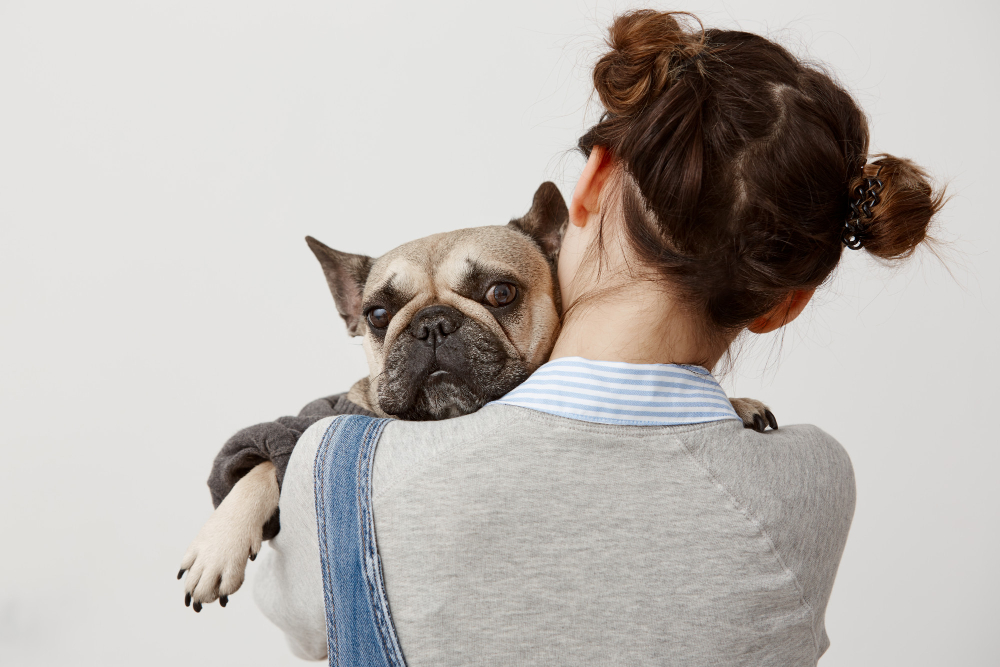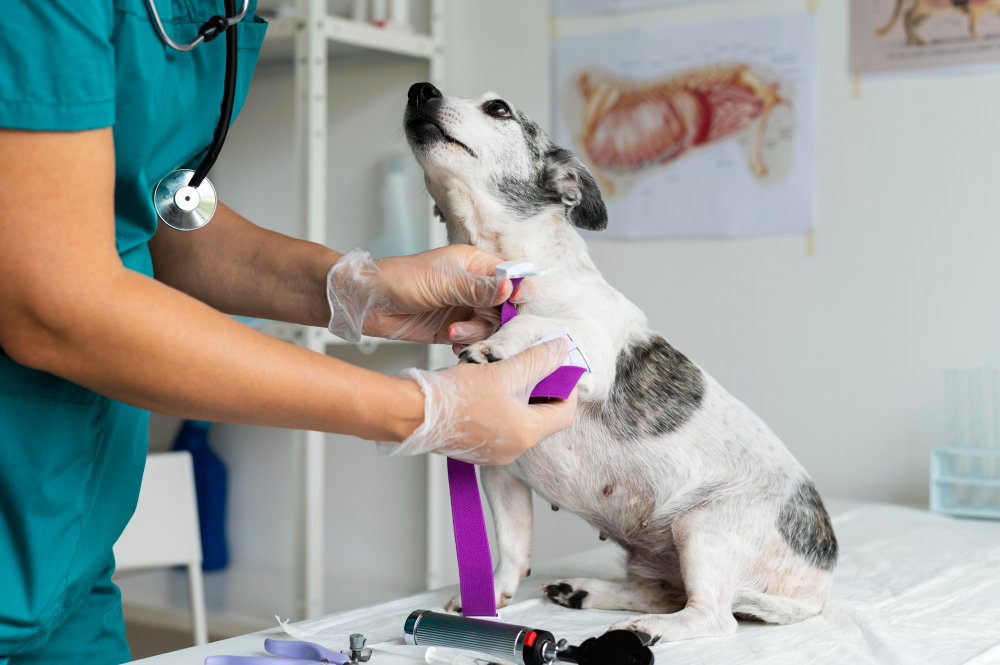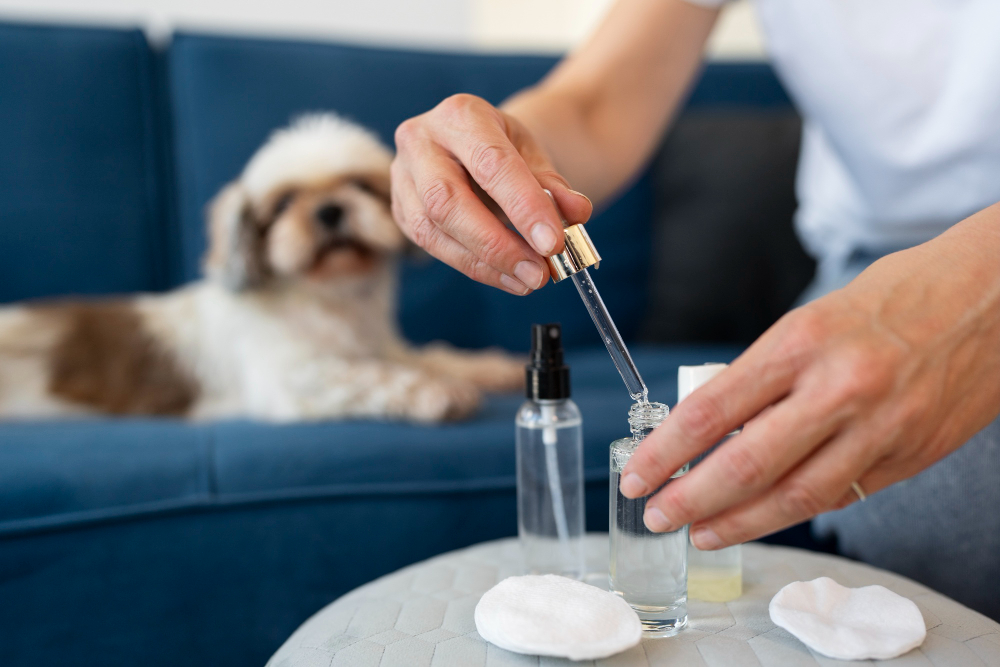Table of Contents
In this article we will focus preventive care tips for a happy pet. As devoted companions and beloved family members, dogs retain a unique place in our hearts. Our lives are made much happier by their wagging tails, inexhaustible energy, and unconditional affection. It is our responsibility as pet owners to make sure that our four-legged companions enjoy happy, healthy lives. Preventive care is one of the most important factors in accomplishing this aim. Our dogs need proactive care to preserve their well-being, just as we prioritise our own health via regular checkups and a balanced lifestyle.
Dogs need a variety of preventive care procedures, from monthly veterinarian checkups and cleanliness upkeep to adequate feeding and exercise regimens. We will dig into the realm of dog health and wellness in this thorough manual, going through preventative care advice that will help make sure your canine friend has a long, healthy, and disease-free life.
Preventive Care Tips for a Happy Pet
The following care tips are important for happy pet.
Nutrition: The Cornerstone of Canine Wellness
The foundation of your dog’s health is proper diet. Everything your dog consumes, from their energy levels to their immune systems, has an impact on how they feel overall. A well-balanced diet that includes proteins, carbs, fats, vitamins, and minerals is necessary for dogs. For advice on the ideal food for your dog depending on, breed, size, and any particular health issues, speak with your veterinarian.
Invest in premium commercial dog food or think about making meals from scratch with advice from your veterinarian. Avoid foods that have additives, fillers, or artificial preservatives. Portion control is important since obesity and other health issues may result from overeating. Feeding your dog table scraps is not advised. Instead, stick to the appropriate serving proportions. Ensure that dog has access to clean, fresh water. Dehydration may result in a number of health problems.
Exercise to Keep Your Dog Active and Fit
A dog’s physical and emotional wellbeing depend on regular exercise. It lowers the risk of behavioural problems, supports cardiovascular health, and aids in maintaining a healthy weight. Take your dog for regular walks to provide them both mental and physical activity. The duration and level of the walk should be appropriate for the breed and age of your dog.
Play interactive games like fetch, tug-of-war, or hide-and-seek with your dog. These pursuits keep your pet occupied while enhancing your relationship with them. If one is accessible, take your pet there to interact with other dogs and run off some energy. Mental Stimulation Puzzle games and toys that release treats help stimulate your dog’s mind and keep him from becoming bored.
Early Detection Through Veterinary Care
Veterinarian visits on a regular basis are essential for keeping your dog healthy. These visits assist in preventing future problems in addition to addressing current ones. Make sure your dog has all required shots. Rabies, distemper, and parvovirus are just a few of the illnesses that vaccines guard against. For a vaccine programme designed to meet your dog’s requirements, speak with your veterinarian. As advised by your veterinarian, provide preventive drugs for intestinal parasites, heartworm, fleas, and ticks.
Dental care is important for your dog’s general health but is sometimes disregarded. As recommended by your veterinarian, frequently brush your dog’s teeth and arrange expert cleanings. Consider neutering your dog if you don’t want to breed them. This not only avoids unintended births but also lowers the chance of several medical conditions.
The Art of Maintenance: Grooming and Hygiene
For your dog to feel comfortable and stay healthy, you must practise good grooming and cleanliness habits. Grooming often may help avoid infections, matting, and skin problems. Depending on the breed and degree of activity, give your dog a bath as required, which is usually every 4-6 weeks. To keep your dog’s coat healthy, use shampoos and conditioners made specifically for dogs.
Regular brushing helps to avoid matting, remove loose hair, and promote healthy skin. The kind of coat on your dog determines how often you should brush them. Regularly examine your dog’s ears for infections or an excessive wax buildup. Use an ear cleaner suggested by your physician to clean them as necessary. To avoid pain and possible harm, keep your dog’s nails at a safe length. Consult your veterinarian or a trained pet groomer for instructions if you’re unclear how to proceed.
Mental Health
The mental health of a dog is equally as crucial as their physical wellness. A happier, healthier pet may result from addressing behavioural problems and offering mental stimulation: To encourage sound socialisation abilities, expose your dog to a variety of settings, humans, and other animals from an early age. Give your dog time to learn new commands using positive reinforcement methods. Along with teaching instructions, training helps to cement your relationship with your pet.
To keep your dog interested and satisfied, provide cognitively engaging activities like puzzle toys, obedience practise, and scent games. Get to know your dog’s stress indicators, which may include increased barking, panting, or destructive behaviour. If necessary, seek professional advice.
Monitoring Your Dog’s Health
While prevention is important, it’s as important to watch out for your dog’s health. Pay attention to changes in their actions, appetite, and state of health: Check your dog’s skin, eyes, ears, and mouth often for lumps, bumps, or changes. Keep an eye on your dog’s weight to stays within a healthy range. If you have substantial weight changes, speak with your veterinarian.
Keep track of your dog’s shots, prescriptions, and medical background. When seeing a veterinarian or in an emergency, this information may be helpful. Have a canine first-aid kit on hand and know where the closest 24-hour veterinarian facility is located to be ready for emergencies.
Conclusion
The secret to giving your cherished canine friend a long, happy, and healthy life is preventive care. Your dog will flourish if you provide them the right food, consistent exercise, frequent veterinarian treatment, grooming, and attention to their emotional health. The work you put forth to provide for your dog’s preventative care will be repaid with a lifetime of love, devotion, and pleasure. Keep in mind that your dog depends on you for their well-being.
Thank you for reading. If you are interested more articles about dog you can check this! https://dogeposts.com/2023/09/how-to-deal-with-separation-anxiety-in-dogs



